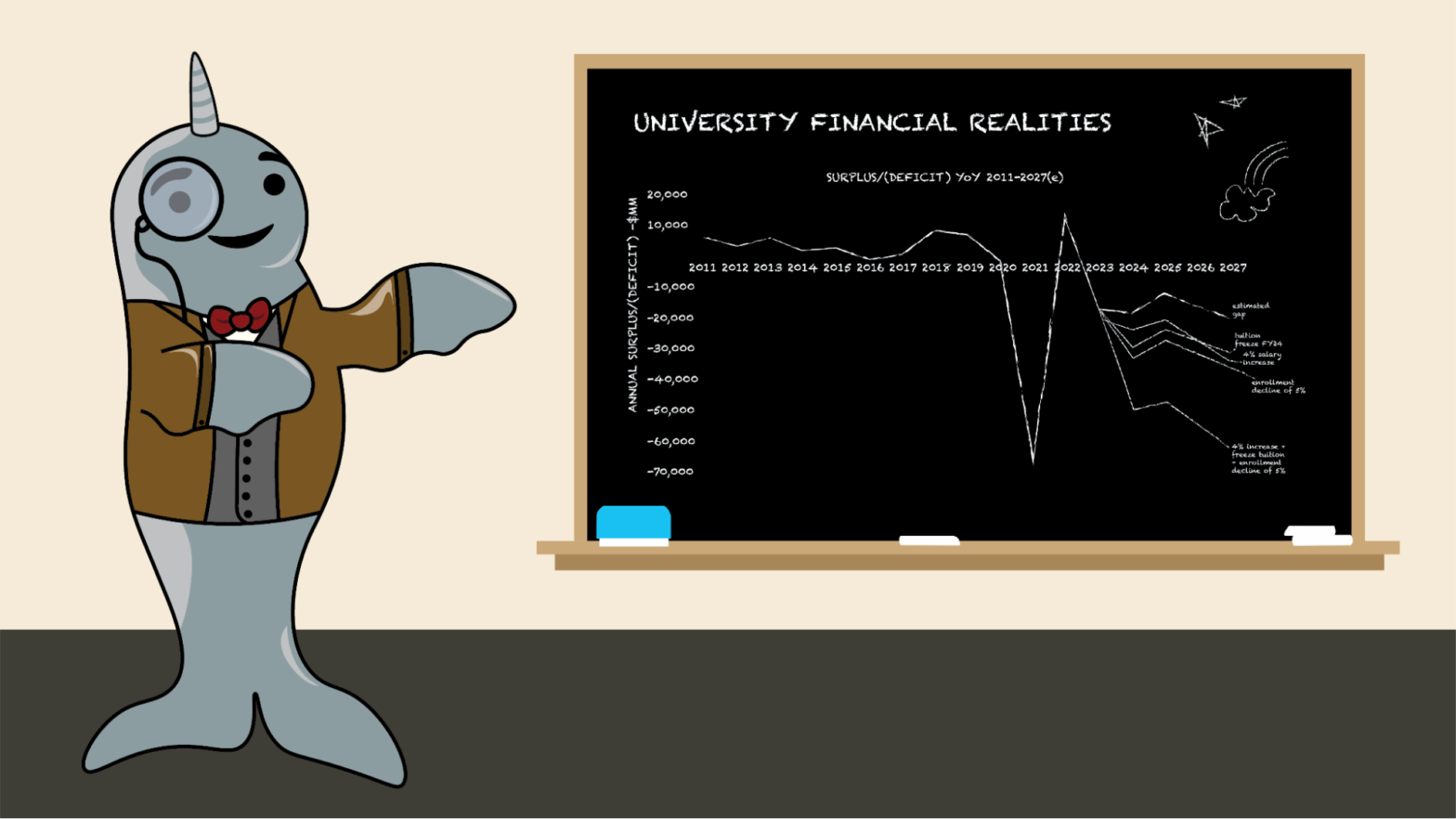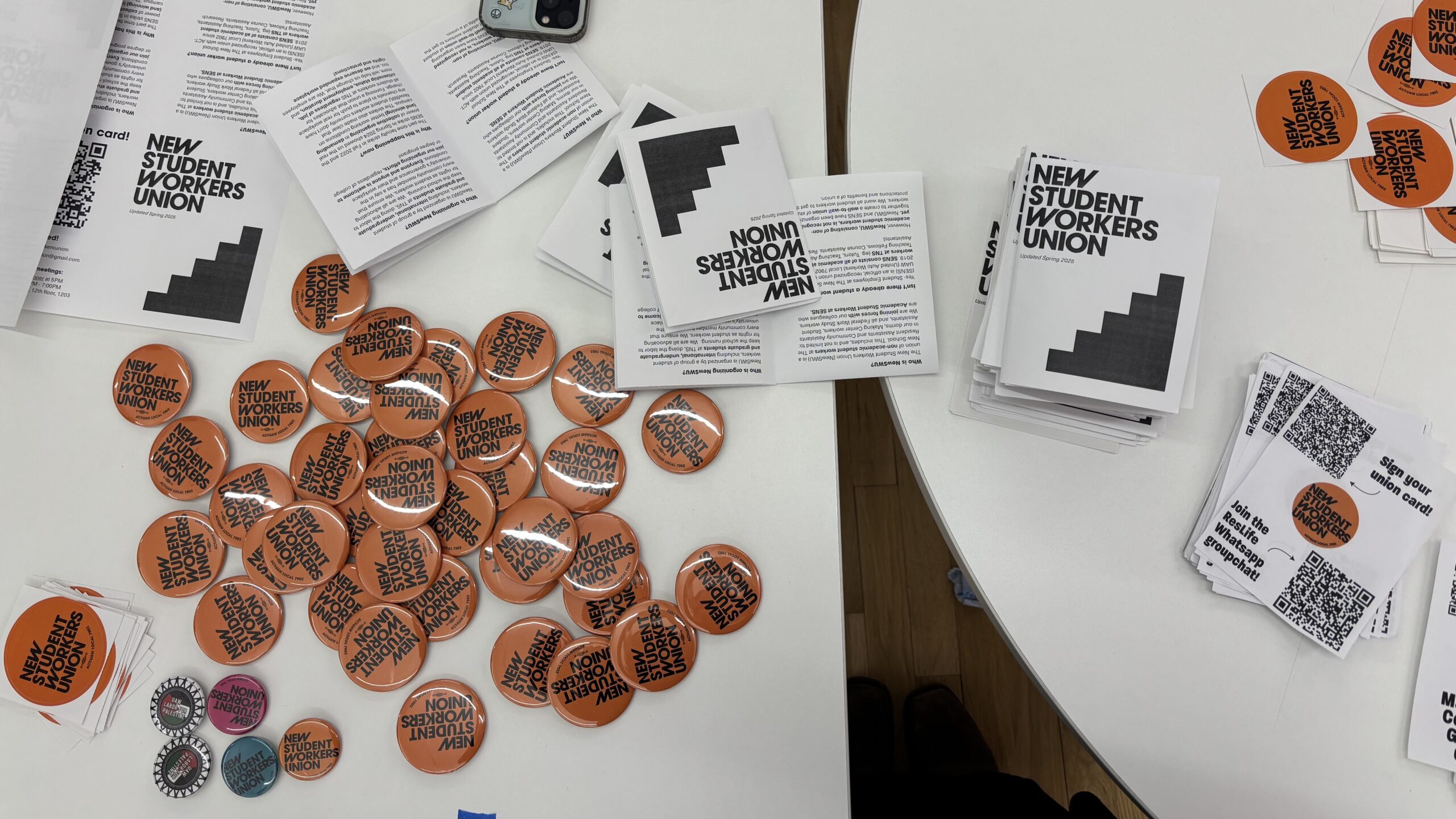The New School is asking faculty, staff and even students to help create ideas that save costs and generate more revenue ahead of an expected budget deficit.
The projected $85.5 million 5-year cumulative budget deficit is a result of a number of factors, including expenses associated with the new Part-Time faculty union contract, expected enrollment decreases, tuition discount rates, and non-union faculty and staff salary increases, according to The New School’s Finance Committee.
In recognition of the upcoming deficit, the Board of Trustees has tasked the University Budget Committee (UBC), who oversees the development of the school’s budget, to create plans to repair the financial stability of the university. As a part of this effort, on Feb 24, 2023, the board announced a temporary expansion of the budget committee to include students, staff and faculty members. The expanded committee, with hopes to create long-term solutions, chose to make their once solitary process more collaborative. The committee has asked the New School community to share their own ideas for ways to potentially reduce expenses or yield revenue.
The Board of Trustees charged the committee with collecting and assessing these “initiatives” and to provide a set of options they deem viable. Students, staff, and faculty are encouraged to propose new academic programs, student recruitment/retention strategies, and/or structural changes. They can also suggest any other ideas that support the university’s mission, priorities, and their financial situation.
Initiatives can be submitted via this google form. Those who submit initiatives must also create a five-year business plan that demonstrates the financial benefits of their initiative. Those who are unable to create a budget plan themselves can receive help from the budget committee. Proposals submitted by April 3, 2023 will be considered for inclusion in the university’s 2024 fiscal year budget. Anything submitted after the first deadline will still be considered for future fiscal years on a rolling basis.
Submitted strategies will go through a process of evaluation by the budget committee and affected departments. They will be graded based on a viability rubric, before being reported to upper administration. Selected initiatives will be adopted in early May.
University Leadership has also been asked by the Board of Trustees to create a plan to address the deficit. Their plan can include the initiatives selected by the University Budget Committee. Though some feel the responsibility to manage the university’s financial instability is being wrongly placed.
During the expanded committee’s first informational session, live-stream viewer Fahmy Shahin commented, “How silly and ridiculous this is…Making it look like it’s us who have to deal with your financial mismanagement is such a bad and mean tactic.”
When asked during the session if the Board of Trustees has come up with ideas to remedy the budget deficit, committee member and Executive Vice President for Business and Operations, Tokumbo Shobowale said, “They don’t have ideas. They are folks who are volunteers who give to the university. Most of them are not faculty members or academic administrators, so they don’t know the ins and outs of what we do. The purpose of this process is to lean into the expertise that all of our staff and faculty have. They’ve charged us, because they know this is our work, to develop a set of ideas and give it to them”
Shobowale said that the board’s primary role is “to make sure the university continues to exist and is fiscally responsible.”
The choice to include faculty, staff, and students in this process comes from a larger, university-wide effort to better engage the New School community, and to increase operational transparency.
The University has dedicated a page to this effort titled “Toward a New Future.” The page states that “Listening to one another, understanding one another’s thoughts and concerns, and finding ways to strengthen participation and collaboration in university planning and governance will guide this work.”








Leave a Reply